It is impossible to deny that in Spain there is daily racism and discrimination that threaten the well-being of many people. We must denounce them and defend a change; lack of education and recognition
It is impossible to deny that in Spain there is daily racism and discrimination that threaten the well-being of many people. We must denounce them and defend a change; lack of education and recgnition.
I am a woman, I am Latina, I am Colombian and I live in Spain, and as happens to so many people, a series of imaginaries and stereotypes associated with my place of birth or my physical features weigh heavily on me. And it's true, I've never been attacked in the street or received shouted insults. However, there is a much more subtle daily discrimination, but also painful.
Latin American women, and also African and Asian women, suffer from constant hypersexualization. "Hot-blooded women like you"; "How affectionate and hot Latinas are" or "I already told all my friends that I have a Colombian neighbor so they can come and meet her" are three phrases that I have come across. Added to this is a constant "monitoring" of my relationship, of my love. My partner is Spanish and I have already lost count of how many times I have received insinuations about my interest in "papers", "nationality" or "money". As if my love were a mere transaction, as if it were not possible to love genuinely for those of us who come from a country in the "global south".
They have also made jokes about whether I sell drugs or if I plan to leave without paying because "that's how we Colombians are." They have analyzed my face countless times to determine if I am white enough to pass for Spanish, as if that were a virtue. I have heard people say "don't hang out with machu pichus" or "how dangerous the Moors are". I have seen how there are those who get up from a bus so as not to sit next to a black person and I have heard the stories of people who struggle to rent an apartment because they are African or Latin American.
Is Spain a racist country? It is a question that has been around the media, social networks and everyday conversations in recent days. The attacks against the footballer Vinicius Junior have put the focus on this issue. Through social networks and the media, countless debates have arisen in this regard and many people have been encouraged to tell their experiences. Articles like "Panchita de mierda" by the Peruvian Gabriela Wiener or "Racism marks the daily life of those of us who are not white in Spain" by the Cuban Abraham Jiménez Enoa tell how racism is something everyday and is more normalized than many want to accept. Spanish people.
The truth is that racism in Spain is not a new issue. I don't like generalizations, because I think they are dangerous and simplify the analysis of complex issues. However, it is clear that in Spain there is a problem of racism, xenophobia and Islamophobia. Just take a look at the results of the last elections. If an openly macho, racist and xenophobic party like VOX has become the third electoral force, tripling its number of councillors , it is because a broad sector of the population shares its vision. Nor should we forget that the president of the Community of Madrid, Isabel Díaz Ayuso, winner by an absolute majority, frequently resorts to an Islamophobic narrative in her speeches. He has even called the centuries in which Muslim kingdoms had their domains in present-day Spain (which at that time did not exist as a nation) "lost Spain" . The curious thing is that precisely in that period there was an enormous flowering of art, architecture and knowledge in general, which lasts until today.
Racism in Spain is not only in the streets, in the classrooms or in the bars, there is also very evident institutional racism. It is enough to go to an immigration office to realize the differential and derogatory treatment that many people receive. In Spain, there are thousands of people who, despite having lived in the country for years, do not have the right to vote or have full citizenship rights. This was denounced by Viviane Ogou, president of the organization Puerta de África, and Safia El Aaddam, writer and activist, on the last election day. Likewise, there are investigations that denounce the criminalization policies that are spread throughout the European Union to attack the defenders of the human rights of migrants. The docuweb "Defenders in the labyrinth" explains this situation very well. And not to mention border policies, with their hot returns and violation of human rights.
It seems that when these issues are discussed and denounced, unforgivable attacks are being made. "Go to your country", "leave Spain then" or "what are you doing here" are comments that are read in the profiles of those who have decided to tell their stories of discrimination and racism. Today Spain is my home and many Spaniards have become my family and friends, and that is why I know that those who are offended when these situations are pointed out are people who do not want to acknowledge a reality. And like all reality, it is not the only one, but it is wrong to look aside.
A matter of hypocrisy
You cannot end racism if you do not recognize that it exists and that it causes suffering to millions of people. We live in a world with pervasive racism and it is hypocritical to deny it or remain indifferent. On this racism, structures have been built that foster deep inequalities in the world. The prevailing world system values lives on a hierarchical scale, where skin color, place of birth, education, gender, and amount of money determine your place on that scale.
If in Spain they have called Vinicius a monkey, in Colombia they have called Francia Márquez a gorilla and ape and in Brazil former president Bolsonaro called indigenous peoples less human. There are innumerable racist attacks that also take place in Latin America, where many countries have built an imaginary around what is white, or mestizo, as the superior. Finally, that is the foundation of racism, an invention to sustain structures of domination.
I refuse to accept that there are categories in the world to define the value of each person; that the color of our skin and our physical features serve to classify us; or that hate speech advances strongly. I refuse to respond to the molds that want to bind me. I think that what happened with Vinicius is an opportunity for us to reflect on racism and discrimination in our closest environment and to raise our voices to reject them, but it is also an opportunity for us to learn to keep quiet and listen to the people who suffer the most from them. the racism. We must recognize our privileges and give up on them to achieve fairer and more equitable societies. Which side of history do we want to be on?




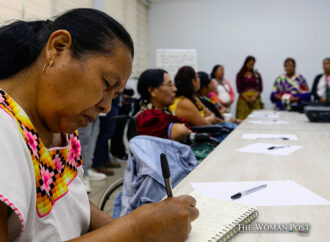
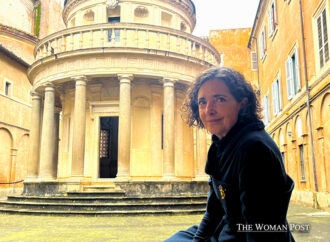

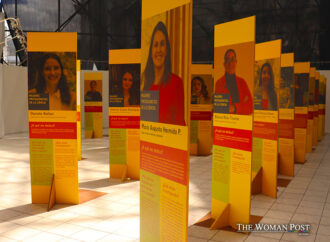
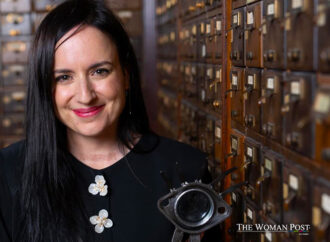






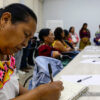


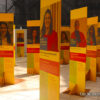

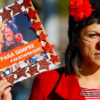



Leave a Comment
Your email address will not be published. Required fields are marked with *